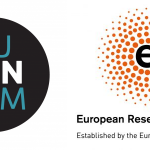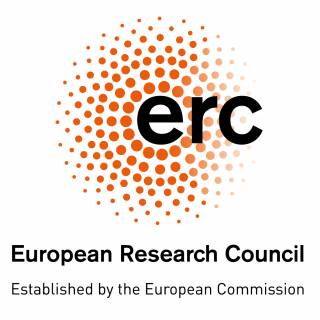 Dr Rosalind Cavaghan will be Visiting Researcher for EUGenDem project in 2019. She will be taking part in research seminars (stay tuned for more information) during the spring and early summer and teaching an MA course in Gender Studies at the Tampere University in September. Cavaghan is a key expert on gender policies, feminist political economy, gender mainstreaming and the European Union and hence a perfect Visiting Researcher for our project to work with and learn from.
Dr Rosalind Cavaghan will be Visiting Researcher for EUGenDem project in 2019. She will be taking part in research seminars (stay tuned for more information) during the spring and early summer and teaching an MA course in Gender Studies at the Tampere University in September. Cavaghan is a key expert on gender policies, feminist political economy, gender mainstreaming and the European Union and hence a perfect Visiting Researcher for our project to work with and learn from.
During her research visit, Cavaghan will be working with EUGenDem’s senior researcher Anna Elomäki with whom she shares an interest in feminist political economy.
What do you plan to do in terms of research during your research visit here in Tampere? Which research topics are you going to present?
I am planning to work on a joint article with the wonderful Dr. Anna Elomäki! Anna and I have, for a long time, shared an interest in gender and the ‘economic crisis’, austerity and the increasing importance of macro economic policy for gender equality outcomes. We are both active in gender budgeting, she in Finland and I in Scotland.
Producing meaningful research ,which explains the gendering effects of macro economic policy, is demanding though. The interrelations between EU member states and the EU level are complex and variable, which means issues of European Integration and shifting EU-Member State responsibilities (and blame dumping!) are relevant. The whole policy area is also shrouded in language, which obscures power relations and human consequences. For this reason, quite a lot of theoretical work is required to do useful empirical work, which cuts through all the confusion and says something meaningful.
Anna and I will be working on these puzzles together. We have different knowledge and skill sets and we will be working to fuse them in a meaningful way, developing some theory, so that we can both do more empirical work. Good, feminist, empirical analysis of EU economic policy is much needed and we both want to do more!
We also asked Rosalind about her thoughts about our EUGenDem project and our study of European Parliament’s political groups and how it relates to her own research.
EUGenDem is a project after my own heart! It covers many concepts and foci that I think about all the time. It looks at practices related to gender and political contestation. Two of the case studies are also areas I am very interested – economic and social policy. Although I would question the division between economic and social policies. However, I am pretty sure others on the team might agree with me on that.
As such, EUGenDem is probably one of very few places in Europe where all the things that constantly preoccupy me are constantly under discussion. Linking all of this specifically to populist, radical and ‘progressive’ parties is not something I have personally yet looked at. However, these kinds of intense ideological splits are obviously, extremely important to the development of the EU and I will enjoy hearing about this from the team at Tampere. For me it will be a very stimulating environment and I am delighted to have been invited to work with such an interesting, and nice, team.
During her visit, Rosalind will also teach a MA course titled Gender and Public Policy in Turbulent Times. She is looking forward to teaching MA students here in Tampere, and she hopes to give students skills to evaluate and comment public policy.
Could you tell us shortly a bit about the course you will be teaching here and how it relates to your research?
I am really looking forward to teaching. I thoroughly enjoy watching student’s perspectives change and listening to different perspectives and I am expecting great things of your masters students! I will be delivering a masters course called Gender and Public Policy in Turbulent Times. The course draws partially on my own industry experience as a policy consultant and the way my research usually focuses on the sneaky gendering effects of ‘mainstream’ policy.
The course is quite intensive. It will introduce feminist concepts, which we use to analyze how public policy shapes intersectional gender inequalities. We will whip through concepts like intersectionality, gender regimes, and critical policy frame analysis. Then we will apply them to uncover how several ‘mainstream’ areas of policy shape intersectional gender inequalities in EU countries. For example, lack of childcare provision, shapes intersectional hierarchies as demand for cheap reproductive labour within in middle class families, is filled by migrant women. We will also look at how different gender equality policies do and do not work.
At the end, I want students to feel equipped to look at a policy and know that they have the skills to work out what its gender impacts could be and to confidently express their view. The course will train them in this!
Finally, we asked her feelings about visiting us in Tampere. Are you excited to visit Tampere Gender Studies and EUGenDem?
Aye! Can youse no tell!? Its gonnie be great!


